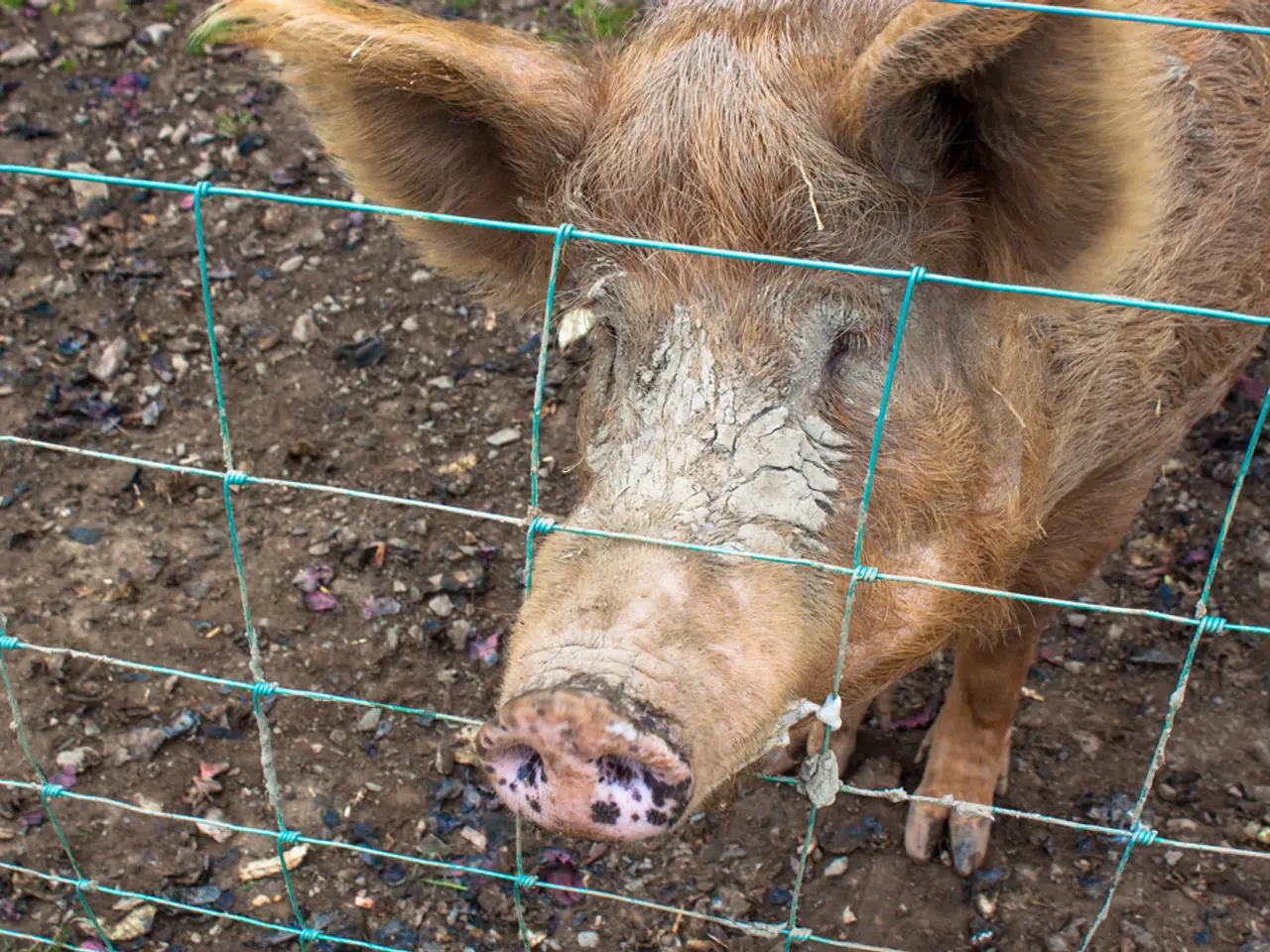Benefits of Choosing Pasture-Raised Pork Over Conventional Pork
In the United States, while the use of beta-adrenergic agonists such as Ractopamine is banned in 160 nations, it is still employed in US pork production [1]. However, an increasing number of consumers are turning to pasture-raised pork for its numerous health benefits and reduced risk of antibiotic-resistant bacteria.
Pasture-raised pork boasts enhanced nutritional content compared to conventionally raised pork. It contains higher levels of omega-3 fatty acids, known to be heart-healthy fats beneficial for human health [1][2]. Additionally, pasture-raised pork offers significantly more micronutrients such as Vitamin D (up to 300% more), Vitamin E (about 200% more), and selenium (around 75% more) [1]. Furthermore, pasture-raised pork has increased levels of conjugated linoleic acid (CLA), which may help promote weight loss, burn fat cells, and reduce appetite [1].
The lower antibiotic use in pasture-raised pork production also contributes to its appeal. While specific quantification of antibiotic use differences may not be readily available, pasture-raised pigs are generally less likely to be given antibiotics routinely due to their natural outdoor environments, which reduce stress and disease transmission common in indoor confinement systems [1]. This reduced antibiotic use helps to lower the risk of contributing to antibiotic-resistant bacteria, a concern linked to conventionally raised animals that often receive antibiotics to promote growth and prevent disease in crowded conditions.
The choice of heritage breeds by producers of pasture-raised pork also plays a significant role. Small farms that raise heritage breeds help to preserve a legacy of farming and culture, and ensure biodiversity by raising diverse heritage breeds [1]. By choosing heritage breeds, producers contribute to the preservation of a farming and cultural legacy. Furthermore, heritage breeds are often poorly adapted to confinement operations, making them a popular choice among producers who raise pigs on pasture.
However, animals raised in confinement operations lack room to exercise, clean air, a natural and species-appropriate diet, and live in extremely crowded conditions that can create disease. As a result, these animals are more likely to carry drug-resistant bacteria. Conversely, pasture-raised pigs are less likely to carry drug-resistant bacteria due to reduced antibiotic exposure [1].
A study by Langlois et al. in 1988 further supports this, demonstrating differences in antibiotic resistance of fecal coliforms from pigs based on age and housing location in a non-antibiotic-exposed herd [2]. This research underscores the potential benefits of pasture-raised pork in reducing the risk of antibiotic-resistant bacterial exposure.
In summary, pasture-raised pork offers numerous advantages over conventionally raised pork, including enhanced nutritional benefits, reduced antibiotic use, and a lower risk of antibiotic-resistant bacterial exposure. By choosing pasture-raised pork, consumers can support a healthier, more sustainable, and culturally rich farming industry.
References: [1] Pasture-Raised vs. Conventional Pork: A Comprehensive Comparison. (n.d.). Retrieved from https://www.pastureraisedpork.com/pasture-raised-vs-conventional-pork/ [2] Langlois, B E., et al. (1988). Effect of age and housing location on antibiotic resistance of fecal coliforms from pigs in a non-antibiotic-exposed herd. Applied and Environmental Microbiology, 54(6), 1341-1347.
- Pasture-raised pork contains a wealth of beneficial nutrients, such as increased levels of omega-3 fatty acids, vitamins D, E, and selenium, and conjugated linoleic acid, which may aid in weight loss, fat burning, and reducing appetite.
- The reduced antibiotic use in pasture-raised pork production contributes to its appeal, as it helps lower the risk of antibiotic-resistant bacteria that are of concern in conventionally raised animals.
- By opting for heritage breeds, producers of pasture-raised pork help preserve a farming and cultural legacy, while ensuring biodiversity by raising diverse heritage breeds.
- Confinement operations, on the other hand, lack essential elements for pigs such as exercise, clean air, natural diets, and room to move freely, leading to higher risks of drug-resistant bacteria.
- In choosing pasture-raised pork, consumers support a healthier, more sustainable, culturally rich farming industry, with potential benefits in reducing the risk of antibiotic-resistant bacterial exposure.
(Also, 'science', 'health-and-wellness', 'fitness-and-exercise', 'nutrition' can be inferred from the context of the text.)




